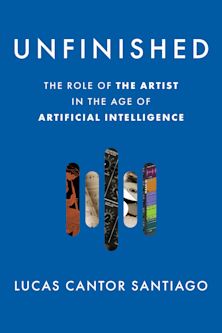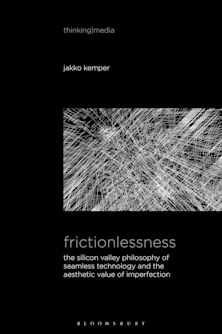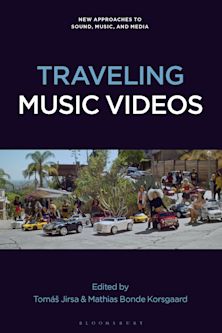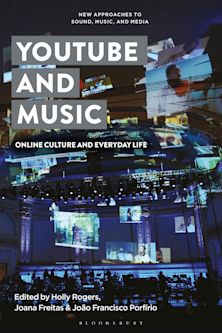- Home
- ACADEMIC
- Film & Media
- New Media and Technology
- The Digital Coloniality of Power
The Digital Coloniality of Power
Epistemic Disobedience in the Social Sciences and the Legitimacy of the Digital Age
The Digital Coloniality of Power
Epistemic Disobedience in the Social Sciences and the Legitimacy of the Digital Age
You must sign in to add this item to your wishlist. Please sign in or create an account
Description
Trouble is afoot in Digital Culture and Nerdland. These are, Alexander I. Stingl claims, not the engine of freedom and democracy that they once were hailed to be – this much is already clear in the wake of the snooping and surveillance crises that broke in recent years. Digitalization is but another version of the coloniality of power and being that has been at work for decades and centuries. He poses the question, whether Digital Age possess the legitimacy that ‘digitalization’ has claimed. His response is critically realistic, but he doesn’t stop at a critique for criticism’s sake. Inspired by the ideas of decolonial scholars, feminist science studies, current biological and neuro-cognitive research, and sociologists capable of reflection and self-criticism, Stingl attempts to ‘break’ the canvas of sociology and show that adding a third and decolonial dimension to the two-dimensional sociological imagination is indeed possible. He illustrates that it is possible that class-rooms, free speech on internet, and the inequalities in the production and distribution of a new form of social capital – digital cultural health care capital – can be subjected to a decolonial perspective along a sociological line of inquiry, if sociologists allow for relations with other disciplines and scholarship to be integrative conversations. The goal of this book is not to offer results or closed arguments but to create, instead, platforms for thinking further, opening new lines of inquiry, and to argue that it is not enough to identify problems or to attempt solve the problems with politics or best practice solutions. Instead, he proposes, we must learn to identify and make use of the opportunities that are produced by any problem.
Stingl’s conclusion is, in short, that a sociology that takes the decolonial challenge and critique seriously, can not be a sociological (sub)discipline or a sociology of (a) problem, but it must be a sociology of opportunities.
Table of Contents
2. From Class to Identity… and Back Again? A Geopolitical Question
3. Danse Macabre: The Sacred, the Rational, and the Algorithm
4. Implifications: Biomedical Relevance, Digital Cultural Health Capital, and Governance 3.0
5. Cyborg Gazing Patient Vitreous:The Body as Technology, Technological Object, and Techno-Normativity
6. The Digital Classroom
7. In Plena Vita—Before and Beyond the Curtain Call
Product details
| Published | 16 Dec 2015 |
|---|---|
| Format | Ebook (PDF) |
| Edition | 1st |
| Extent | 426 |
| ISBN | 9798216245681 |
| Imprint | Lexington Books |
| Publisher | Bloomsbury Publishing |
About the contributors
Reviews
-
In a time when media, social media, nations, and educational settings feed ideas to us in increasingly small sound-bites that are digested on the run, it is refreshing to find a book which takes the time to delve into ontological and epistemic questions relevant to our digitally infused world today. Stingl disentangles the meaning of digital culture and how power and inequality become manifest within digital realms with great care.... For those who can manage the work, in unpacking the implications of Digital Culture and the digital coloniality of power, Stingl’s love of language, philosophy, and ideas comes through as he revels not only in ideas, but in words and word-play. Stingl, however, does not get lost in his rhetoric but rather still has the impassioned commitment to sociology required to get fired up while practicing epistemic disobedience.
Symbolic Interaction
-
Today, the internet has become what Jorge Luis Borges called the “Total Library,” and with it, a Promethean promised has been loudly proclaimed: digital culture shall make you free! This incredible book, a Rabelaisian Carnival of knowledges, urges us to see through these myths. Today, the internet and its whole new digital culture has become another means to update and upgrade the hegemony of the Global North over the old and new Global South. Here disciplinary irreverence yields conceptual illumination. Henceforth, when you google you will do so with trepidation but in defiance.
Eduardo Mendieta, Pennsylvania State University
-
This inventive and unconventional book covers so much intellectual territory that it is at home everywhere and nowhere—a nomadic, ronin-like text. While the text is chocked-full of thoughtful and provocative tangents, Stingl's chief aim is to establish openings and platforms for theorists who want to challenge business-as-usual in the social sciences, and he does so with palpable success based on insights from the broader project of decoloniality and a serious critique of salvation by "digital" means. A comment on style: Stingl's writing is melodic and dark, but a kernel of hope underlies every sentence, every turn-of-phrase. I found the book at once disturbing and enchanting.
Nicholas Rowland, Pennsylvania State University
-
An erudite and intrepid book! It exposes the colonial epistemologies framing today’s digital culture and raises crucial questions about the possibilities of a decolonial sociology.
Jyoti Puri, Simmons College



































